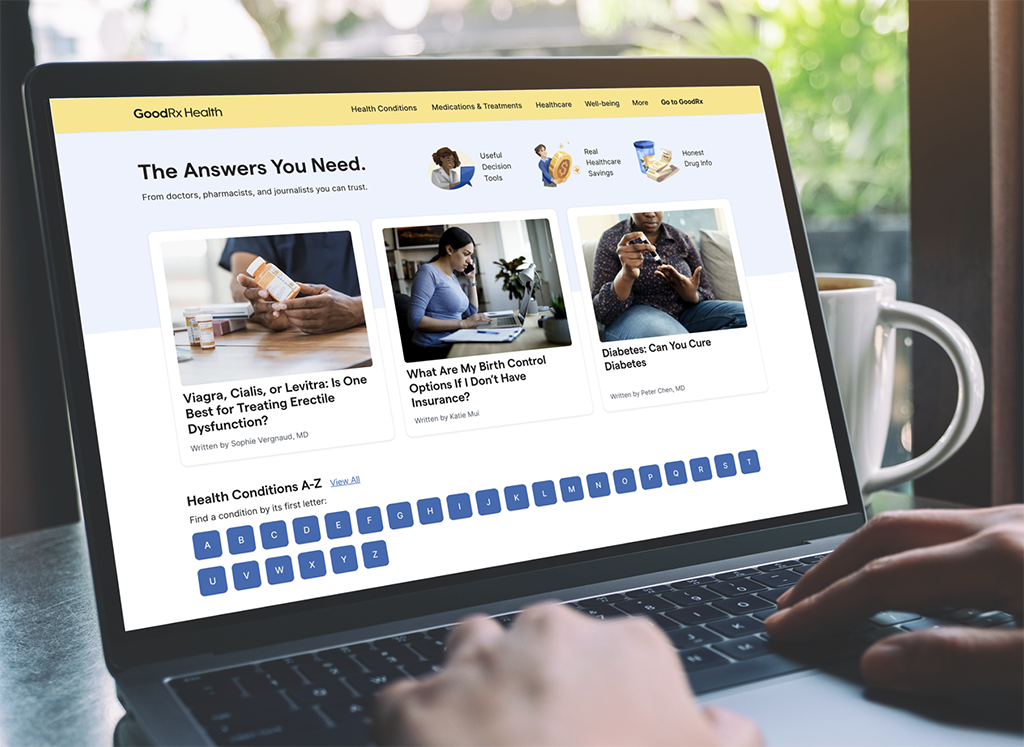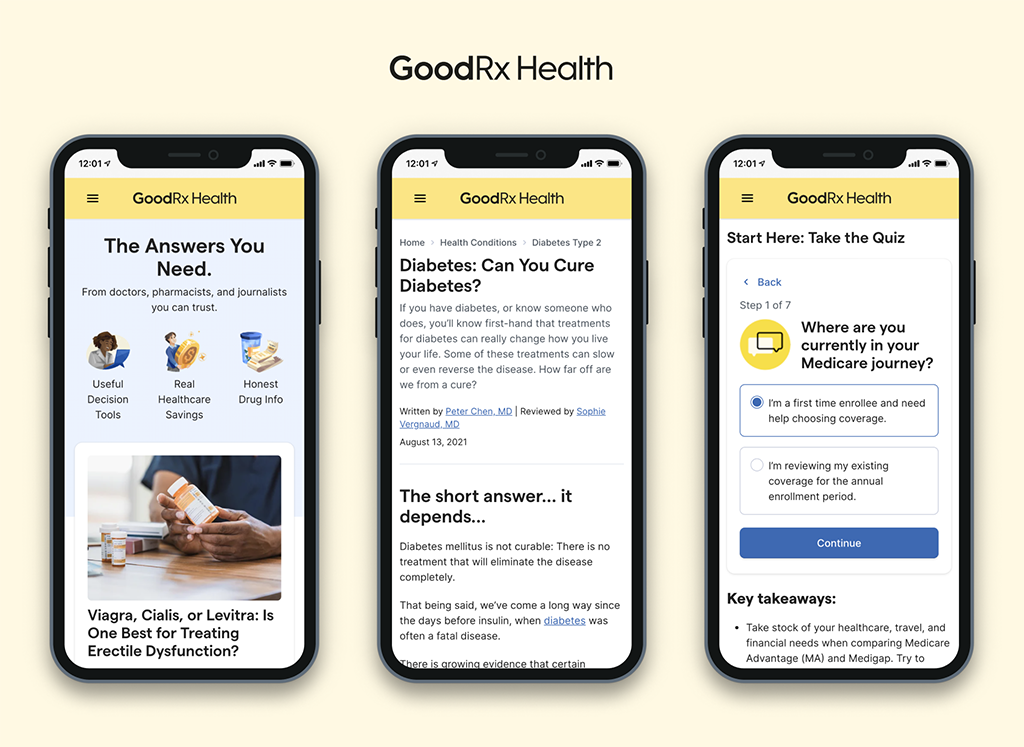GoodRx has turbocharged its content offering, launching GoodRx Health with the goal of providing clear, authoritative answers to common health questions.
It represents something of a new direction for the broader organization, given GoodRx’s prior concentration on cost and savings information (which, the company stressed, will remain a focus). At the same time, GoodRx Health slots in easily alongside the company’s existing content. It’s less a departure than an evolution.
There’s nothing unique about GoodRx Health’s overarching goal, which is to drive more informed health decisions. WebMD, after all, has been doing this in some manner since 1996 and Healthline Media (née YourDoctor.com) since 1999. What distinguishes GoodRx’s offering is its focus on user experience – specifically, pruning the decision tree for individuals seeking answers to their questions.
Not coincidentally, GoodRx Health counts Thomas Goetz, the former executive editor of Wired and author of The Decision Tree: How to Make Better Choices and Take Control of Your Health, among its leaders.

“You may say, ‘Health information has been on the internet for 25 years. Why do we need more now?’” said Goetz, GoodRx’s chief of research and communications. “I hope we can convince you that we’re doing something distinct and winning.”
Even a cursory glimpse at GoodRx Health makes it clear that the offering will clear the “distinct” bar. It employs four primary formats, with information delivered via GoodRx Answers (to questions as broad as “Can You Cure Diabetes?” and narrow as “Viagra, Cialis or Levitra: Is One Best for Treating Erectile Dysfunction?”); Health Wizards (a series of decision-making tools); Health Debunked (which addresses health misinformation in its many forms, COVID-related and otherwise); and Video Explainers (featuring short clips mostly created by HealthiNation, the health video company GoodRx acquired earlier this year).
The company’s editorial guidelines, not surprisingly, play up its exacting standards around accuracy as well as the knowledge of its editorial team. To that latter point, nearly all GoodRx Health content is created and fact-checked by a 50-strong unit comprised of doctors, pharmacists and health journalists. All material is written at a seventh-grade reading level.
“When you are trying to work people through a problem, you need to do it in a simple and elegant way,” Goetz said. “You want to move them, pixel by pixel, from a state of fear and anxiety about health to a place of more comfort and confidence and calm.”
GoodRx Health isn’t starting from scratch with its content: The company has curated thousands of stories, literally, over the last few years. But the formal launch represents what Goetz characterized as “a big bet” on an approach that can scale much more broadly across consumer needs.
“We’re not trying to boil the ocean. We’re not going to create hundreds of thousands of pages,” he explained. “But we feel there’s an opportunity to write a definitive answer and guide on a given topic, then keep it up to date and let that become the resource of record.”

In that sense, GoodRx Health has as much in common with NerdWallet and The New York Times’ Wirecutter product guide as it does with traditional health-media sites. These are not comparisons that GoodRx is discouraging.
Clearly there’s just as much of a business case for GoodRx Health as there is for comparable offerings in different verticals. Goetz noted that pharmaceutical manufacturers are spending $30 billion per year on consumer marketing and aren’t exactly providing people with an Amazon-esque user experience. His pitch to commercial partners is a simple one: Individuals who visit GoodRx Health are poised to act.
“We’re not just going to throw display ads all over the place. We’re very discreet in where we put up calls to action,” Goetz stressed. “We have the benefit of a good core business model. When somebody is ready to fill a prescription, we want to be able to meet them well before they go to the pharmacy. It’s a high-intent audience.”
As GoodRx Health expands in the months and years ahead, it will likely increase its volume of video content (“we’ve only cracked the surface in terms of exploring what a video-first audience needs,” Goetz said) and newsletters. Right now, the organization publishes a handful of them, including ones dedicated to health-related savings, pet health and diabetes.
“Most of medicine and healthcare is full of two things: complexity and uncertainty. You can’t do away with that, but you can make it easier to navigate,” Goetz said. “That’s a rewarding thing to be a part of.”







